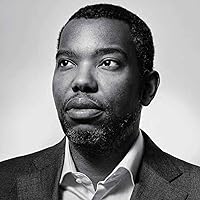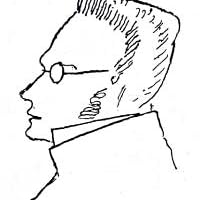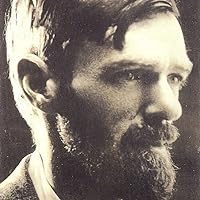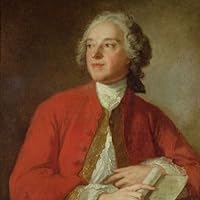Amorality Quotes
Quotes tagged as "amorality"
Showing 1-17 of 17

“You have your way. I have my way. As for the right way, the correct way, and the only way, it does not exist.”
―
―

“It is a well-known fact that very often, putting the period of boyhood out of the argument, the older we grow the more cynical and hardened we become; indeed, many of us are only saved by timely death from moral petrification, if not from moral corruption.”
― She: A History of Adventure
― She: A History of Adventure

“You know I love you. You're the only one."
"She isn't the first woman he's ever said that to. He shouldn't have used it up so much earlier in his life, he shouldn't have treated it like a tool, a wedge, a key to open women. By the time he got around to meaning it, the words sounded fraudulent to him and he'd been ashamed to pronounce them.”
― Oryx and Crake
"She isn't the first woman he's ever said that to. He shouldn't have used it up so much earlier in his life, he shouldn't have treated it like a tool, a wedge, a key to open women. By the time he got around to meaning it, the words sounded fraudulent to him and he'd been ashamed to pronounce them.”
― Oryx and Crake

“Durante toda mi vida he entendido el amor como una especie de esclavitud consentida. Pero esto no es así: la libertad sólo existe cuando existe el amor. Quien se entrega totalmente, quien se siente libre, ama al máximo. Y quien ama al máximo, se siente libre. Pero en el amor, cada uno de nosotros es responsable por lo que siente, y no puede culpar al otro por eso.
Nadie pierde a nadie porque nadie posee a nadie.
Y esta es la verdadera experiencia de la libertad: Tener lo más importante del mundo sin poseerlo.”
― Eleven Minutes
Nadie pierde a nadie porque nadie posee a nadie.
Y esta es la verdadera experiencia de la libertad: Tener lo más importante del mundo sin poseerlo.”
― Eleven Minutes

“How deep, how recondite this seeming petty heart,
In whose recesses right and wrong lie dimmed by distance.”
― The Three-Cornered World
In whose recesses right and wrong lie dimmed by distance.”
― The Three-Cornered World

“Each generation exercises power over its successors: and each, in so far as it modifies the environment bequeathed to it and rebels against tradition, resists and limits the power of its predecessors. This modifies the picture which is sometimes painted of a progressive emancipation from tradition and a progressive control of natural processes resulting in a continual increase of human power. In reality, of course, if any one age really attains, by eugenics and scientific education, the power to make its descendants what it pleases, all men who live after it are the patients of that power. They are weaker, not stronger: for though we may have put wonderful machines in their hands we have pre-ordained how they are to use them.”
― The Abolition of Man
― The Abolition of Man

“Ideas like cosmic justice, collective hope, and national redemption had no meaning for me. The truth was in the everything that came after atheism, after the amorality of the universe is taken not as a problem but as a given. It was then that I was freed from considering my own morality away from the cosmic and the abstract. Life was short, and death undefeated. So I loved hard, since I would not love for long.”
― We Were Eight Years in Power: An American Tragedy
― We Were Eight Years in Power: An American Tragedy

“Moral spontaneity" corresponds entirely with "religious and orthodox philosophy", "constitutional monarchy", "the Christian state", "freedom with certain limits", or in a figure, to the hero fetters to a sick bed.”
― The Ego and Its Own
― The Ego and Its Own

“La sociedad era horrible porque estaba loca. La sociedad civilizada es un despropósito. El dinero y el llamado amor son sus dos grandes manías; con el dinero muy a la cabeza. En su inconexa locura el individuo se identifica a sí mismo de esas dos formas: dinero y amor”
― Lady Chatterley’s Lover
― Lady Chatterley’s Lover

“ROSINE. What gives you the right?
BARTHOLO. The oldest right in the world: the right of the strong.”
― The Barber of Seville / The Marriage of Figaro / The Guilty Mother
BARTHOLO. The oldest right in the world: the right of the strong.”
― The Barber of Seville / The Marriage of Figaro / The Guilty Mother

“A conscience is a self-reproaching program that is installed in us, not by nature, but by our culture.”
―
―

“Ah. Well, it stands for Freedom From Morality. We don't think healthy amorality happens naturally."
"But you're not amoral," I pointed out. I would trust you to keep your word any time. You don't steal. I've never known you to harm anyone except enemy soldiers in time of war."
He laughed. "I didn't say 'immoral', I said amoral. You really didn't read your guidebook. A person who has a compulsive need to break moral commandments is as much a prisoner as the person who feels bound to obey them. And the human brain is hardwired to produce moral commandments. That is why we think you have to train young people to keep them from developing morality and blocking their pursuit of pleasure. I teach it because --"
"It gives you an outlet for your sadistic urge to confuse children.”
― The Merchants of Souls
"But you're not amoral," I pointed out. I would trust you to keep your word any time. You don't steal. I've never known you to harm anyone except enemy soldiers in time of war."
He laughed. "I didn't say 'immoral', I said amoral. You really didn't read your guidebook. A person who has a compulsive need to break moral commandments is as much a prisoner as the person who feels bound to obey them. And the human brain is hardwired to produce moral commandments. That is why we think you have to train young people to keep them from developing morality and blocking their pursuit of pleasure. I teach it because --"
"It gives you an outlet for your sadistic urge to confuse children.”
― The Merchants of Souls

“We see here that Plato recognizes only one ultimate standard, the interest of the state. Everything that furthers it is good and virtuous and just; everything that threatens it is bad and wicked and unjust. Actions that serve it are moral; actions that endanger it, immoral. In other words, Plato’s moral code is strictly utilitarian; it is a code of collectivist or political utilitarianism. The criterion of morality is the interest of the state. Morality is nothing but political hygiene.
This is the collectivist, the tribal, the totalitarian theory of morality: ‘Good is what is in the interest of my group; or my tribe; or my state.’ It is easy to see what this morality implied for international relations: that the state itself can never be wrong in any of its actions, as long as it is strong; that the state has the right, not only to do violence to its citizens, should that lead to an increase of strength, but also to attack other states, provided it does so without weakening itself. (This inference, the explicit recognition of the amorality of the state, and consequently the defence of moral nihilism in international relations, was drawn by Hegel.)”
― The Open Society and Its Enemies - Volume One: The Spell of Plato
This is the collectivist, the tribal, the totalitarian theory of morality: ‘Good is what is in the interest of my group; or my tribe; or my state.’ It is easy to see what this morality implied for international relations: that the state itself can never be wrong in any of its actions, as long as it is strong; that the state has the right, not only to do violence to its citizens, should that lead to an increase of strength, but also to attack other states, provided it does so without weakening itself. (This inference, the explicit recognition of the amorality of the state, and consequently the defence of moral nihilism in international relations, was drawn by Hegel.)”
― The Open Society and Its Enemies - Volume One: The Spell of Plato

“Too high for common selfishness, he could
At times resign his own for others’ good,
But not in pity, not because he ought,
But in some strange perversity of thought,
That swayed him onward with a secret pride
To do what few or none would do beside;
And this same impulse would, in tempting time,
Mislead his spirit equally in crime;
So much he soared beyond, or sunk beneath,
The men with whom he felt condemned to breathe,
And longed by good or ill to separate
Himself from all who shared his mortal state.”
― Lara
At times resign his own for others’ good,
But not in pity, not because he ought,
But in some strange perversity of thought,
That swayed him onward with a secret pride
To do what few or none would do beside;
And this same impulse would, in tempting time,
Mislead his spirit equally in crime;
So much he soared beyond, or sunk beneath,
The men with whom he felt condemned to breathe,
And longed by good or ill to separate
Himself from all who shared his mortal state.”
― Lara

“Ideas like cosmic justice, collective hope, and national redemption had no
meaning for me. The truth was in the everything that came after atheism, after
the amorality of the universe is taken not as a problem but as a given. It was then
that I was freed from considering my own morality away from the cosmic and
the abstract. Life was short, and death undefeated. So I loved hard, since I would
not love for long.”
― We Were Eight Years in Power: An American Tragedy
meaning for me. The truth was in the everything that came after atheism, after
the amorality of the universe is taken not as a problem but as a given. It was then
that I was freed from considering my own morality away from the cosmic and
the abstract. Life was short, and death undefeated. So I loved hard, since I would
not love for long.”
― We Were Eight Years in Power: An American Tragedy

“Don't you understand? If that's the case, then - then everything is dicated by random chance! Somewhere, there's a universe where you - for whatever reason - you didn't come looking for me, and I - I slit my throat. And who's to say that this universe is somehow better than that one? How can we claim that we live in a moral universe, and that every other one is immoral?”
― Monsters in a Mirror: Strange Tales from the Chapel Perilous
― Monsters in a Mirror: Strange Tales from the Chapel Perilous

“She leaned back in her chair and raised her face to the sun, mildly intoxicated, not so much by the wine as by the scope of this important argument. Seduced, also, by the possibility that she might please herself, simply by wishing it so. As a devil's advocate, he was flawless. And yet, she knew, there was a flaw in his reasoning, just as there was a flaw in his ability to feel.”
― Hotel du Lac
― Hotel du Lac
All Quotes
|
My Quotes
|
Add A Quote
Browse By Tag
- Love Quotes 97k
- Life Quotes 75.5k
- Inspirational Quotes 72.5k
- Humor Quotes 43.5k
- Philosophy Quotes 29.5k
- Inspirational Quotes Quotes 27k
- God Quotes 26k
- Truth Quotes 23.5k
- Wisdom Quotes 23.5k
- Romance Quotes 23k
- Poetry Quotes 22k
- Death Quotes 20k
- Happiness Quotes 18.5k
- Life Lessons Quotes 18.5k
- Hope Quotes 18k
- Faith Quotes 18k
- Quotes Quotes 16.5k
- Inspiration Quotes 16.5k
- Spirituality Quotes 15k
- Religion Quotes 15k
- Motivational Quotes 15k
- Writing Quotes 14.5k
- Relationships Quotes 14.5k
- Life Quotes Quotes 14k
- Love Quotes Quotes 13.5k
- Success Quotes 13.5k
- Time Quotes 12.5k
- Motivation Quotes 12k
- Science Quotes 11.5k
- Knowledge Quotes 11k

